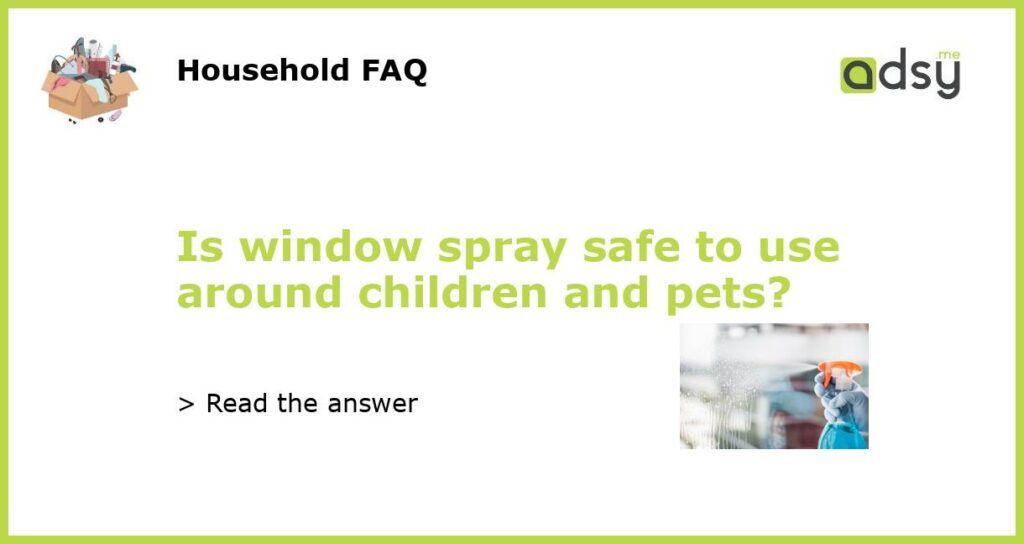Window Sprays and their Composition
Window sprays are a common household cleaning product used to remove dirt, grime, and stains from windows and glass surfaces. They are typically made up of a combination of water, solvents, detergents, and other cleaning agents. While these cleaners are generally safe to use, it is important to understand their potential risks when used around children and pets.
Chemical Risks
One of the main concerns with window sprays is the chemicals they contain. Many window sprays include ingredients such as ammonia, alcohol, and various other solvents. These chemicals can cause irritation or allergic reactions in some individuals, particularly those with sensitivities or allergies. This is true for both adults and children. Pets can also be sensitive to the chemicals found in window sprays, especially if they come into direct contact with them. Ingesting these chemicals can lead to digestive issues or other health problems for pets.
Precautions for Use
When using window sprays in your home, there are several precautions you can take to minimize the risk to children and pets:
- Choose a window spray that is labeled as safe for use around children and pets.
- Keep children and pets away from the area being cleaned while you are using the spray.
- Ensure proper ventilation by opening windows or using fans when using the spray.
- Store window sprays and other cleaning products out of reach of children and pets.
- Follow the instructions on the product label for safe and effective use.
Alternative Cleaning Methods
If you are concerned about the potential risks of using window sprays around children and pets, there are alternative cleaning methods you can consider:
- Vinegar and water: A simple and natural solution of vinegar and water can be used to clean windows and glass surfaces.
- Lemon juice: Lemon juice is a natural disinfectant and can be used to clean windows and remove stains.
- Microfiber cloth: Instead of using a spray, you can simply dampen a microfiber cloth with water or a mild detergent and use it to clean windows.
- Homemade cleaners: There are many recipes available online for homemade window cleaners using natural ingredients such as vinegar, lemon juice, and baking soda.
While window sprays can be effective for cleaning windows and glass surfaces, it is important to take precautions when using them around children and pets. The chemicals found in these sprays can cause irritation or allergic reactions, and pets may be particularly sensitive to them. By choosing a safe window spray, following proper usage instructions, and considering alternative cleaning methods, you can ensure the safety of your family and furry friends while keeping your windows sparkling clean.






